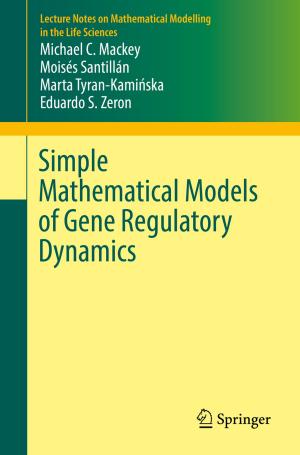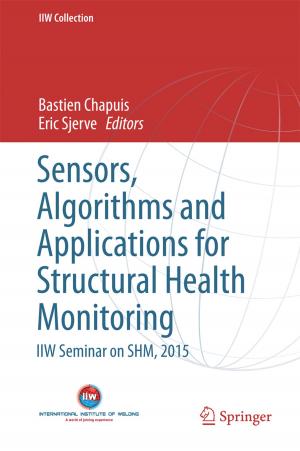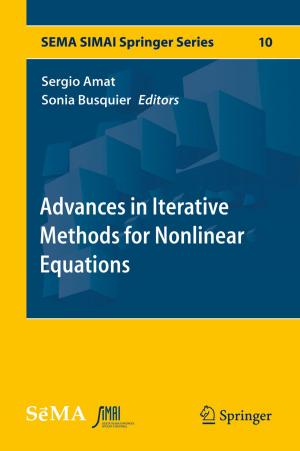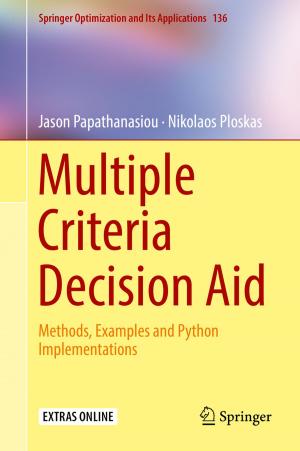Assessment for Learning: Meeting the Challenge of Implementation
Nonfiction, Reference & Language, Education & Teaching, Educational Theory, Evaluation, Educational Reform| Author: | ISBN: | 9783319392110 | |
| Publisher: | Springer International Publishing | Publication: | August 15, 2016 |
| Imprint: | Springer | Language: | English |
| Author: | |
| ISBN: | 9783319392110 |
| Publisher: | Springer International Publishing |
| Publication: | August 15, 2016 |
| Imprint: | Springer |
| Language: | English |
This book provides new perspectives on Assessment for Learning (AfL), on the challenges encountered in its implementation, and on the diverse ways of meeting these challenges. It brings together contributions from authors working in a wide range of educational contexts: Australia, Canada, England, Germany, New Zealand, Norway, Israel, Philippines, Scotland, Spain, Sweden, Switzerland, the United States. It reflects the issues, innovations, and critical reflections that are emerging in an expanding international network of researchers, professional development providers, and policy makers, all of whom work closely with classroom teachers and school leaders to improve the assessment of student learning.
The concept of Assessment for Learning, initially formulated in 1999 by the Assessment Reform Group in the United Kingdom, has inspired new ways of conceiving and practicing classroom assessment in education systems around the world. This book examines assessment for learning in a broad perspective which includes diverse approaches to formative assessment (some emphasizing teacher intervention, others student involvement in assessment), as well as some forms of summative assessment designed to support student learning. The focus is on assessment in K-12 classrooms and on the continuing professional learning of teachers and school leaders working with these classrooms.
Readers of this volume will encounter well documented accounts of AfL implementation across a large spectrum of conditions in different countries and thereby acquire better understanding of the challenges that emerge in the transition from theory and policy to classroom practice. They will also discover a wealth of ideas for implementing assessment for learning in an effective and sustainable manner. The chapters are grouped in three Parts: (1) Assessment Policy Enactment in Education Systems; (2) Professional Development and Collaborative Learning about Assessment; (3) Assessment Culture and the Co-Regulation of Learning. An introduction to each Part provides an overview and presents the suggestions and recommendations formulated in the chapters.
This book provides new perspectives on Assessment for Learning (AfL), on the challenges encountered in its implementation, and on the diverse ways of meeting these challenges. It brings together contributions from authors working in a wide range of educational contexts: Australia, Canada, England, Germany, New Zealand, Norway, Israel, Philippines, Scotland, Spain, Sweden, Switzerland, the United States. It reflects the issues, innovations, and critical reflections that are emerging in an expanding international network of researchers, professional development providers, and policy makers, all of whom work closely with classroom teachers and school leaders to improve the assessment of student learning.
The concept of Assessment for Learning, initially formulated in 1999 by the Assessment Reform Group in the United Kingdom, has inspired new ways of conceiving and practicing classroom assessment in education systems around the world. This book examines assessment for learning in a broad perspective which includes diverse approaches to formative assessment (some emphasizing teacher intervention, others student involvement in assessment), as well as some forms of summative assessment designed to support student learning. The focus is on assessment in K-12 classrooms and on the continuing professional learning of teachers and school leaders working with these classrooms.
Readers of this volume will encounter well documented accounts of AfL implementation across a large spectrum of conditions in different countries and thereby acquire better understanding of the challenges that emerge in the transition from theory and policy to classroom practice. They will also discover a wealth of ideas for implementing assessment for learning in an effective and sustainable manner. The chapters are grouped in three Parts: (1) Assessment Policy Enactment in Education Systems; (2) Professional Development and Collaborative Learning about Assessment; (3) Assessment Culture and the Co-Regulation of Learning. An introduction to each Part provides an overview and presents the suggestions and recommendations formulated in the chapters.















